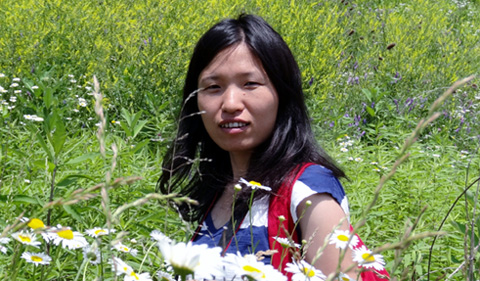Ohio University News featured a study by Dr. Claudia González Vallejo and Ohio University alumna Dr. Ping Xu that reveals that humans are impatient, even down to seconds—and González Vallejo notes that the findings can be applicable to behaviors during the Covid-19 pandemic.
An Ohio University study seeking to understand the psychological mechanisms of waiting for a larger reward in contrast to instant gratification with a smaller reward was recently published in the Journal of Experimental Psychology: General, a flagship journal of the American Psychological Association.
The research team discussed in their paper how their findings show that people are impatient not only when thinking about whether to wait or not for a larger reward in the abstract, but they are even more impatient when they actually must wait to receive a larger reward. In the study, the amounts and delays were small (in cents and seconds), but even in the small-scale participants demonstrated myopic behavior, as in preferring the smaller payoff sooner.
“In this particular paper, we’re interested in how people make decisions that entail comparing the time that it takes to get something versus how much one will get,” said Dr. Claudia González Vallejo, a professor in the College of Arts and Sciences Department of Psychology and second author of the paper. “Those types of experiments are under an umbrella of what is called intertemporal choice, which refers to studying how people make tradeoffs between amounts, either to gain or to lose, relative to the timing of those.”
The paper’s lead author is Dr. Ping Xu, currently of Shenzhen University’s School of Psychology, and the third author is Dr. Benjamin Vincent of University of Dundee’s School of Social Sciences.
…
Although the research project was started a couple years ago, González Vallejo noted that the findings can be applicable to the current pandemic.
For example, while some countries implemented earlier and longer lockdowns and mask mandates, others showed hesitation to implement such policies or did not wait through the mandates long enough for cases to decrease substantially, with cases continuing to grow.
“I think a lot of experts right now come together and agree on some studies that have shown that if [the United States] had remained in lockdown, or if lockdowns were done earlier and longer, perhaps things would have unfolded differently,” González Vallejo said. “Waiting is not easy, as our study showed, and I think future research in terms of analyzing different countries’ policies with that in mind will show how some policies requiring patience ended up giving different outcomes for this pandemic.”
Read the entire story in Ohio University News.
Read the journal article, “Waiting in intertemporal choice tasks affects discounting and subjective time perception.”
González Vallejo, professor of Psychology at Ohio University, is currently a Jefferson Science Fellow with the National Academies of Science, Engineering, and Medicine.





















Comments